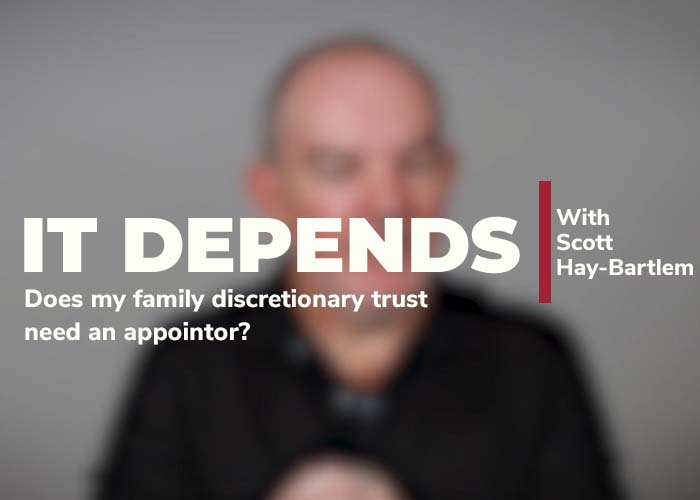The recent Victorian decision of Re Marsella; Marsella v Wareham (No 2) [2019] VSC 65, demonstrates what not to do as a trustee when paying a death benefit from a self-managed superannuation fund, and, very importantly, what not to do as a trustee’s adviser. The case is a perfect example of where specialist advice could have completely changed the outcome.
In Re Marsella, Mrs Marsella had died, with her daughter as the remaining trustee of her self managed superannuation fund. Her daughter decided to pay the death benefit to herself and this decision was challenged by Mrs Marsella’s second husband.
The issues in dispute were whether:
- the daughter had correctly exercised the trustee’s discretion in paying the death benefit to herself
- the decision to pay the death benefit to the daughter was a conflict of interest.
Ultimately, the daughter was removed as the trustee of the SMSF, as the court decided she exercised her discretion in bad faith and without proper consideration of the relevant issues. She must repay the death benefit and the new trustee (likely to be an independent person) will remake the death benefit payment.
What went wrong
In considering the trustee’s decision to pay the death benefit to herself, the Court considered the following evidence:
- correspondence between the daughter’s solicitor and the solicitor for the husband
- advice provided by the fund’s accountant
- the resolutions recording the trustee’s decision to pay the death benefit
- the surrounding circumstances of the disputes arising in the deceased estate
Based on the evidence, the Court found the daughter, as trustee:
- did not understand her duties to consider the other eligible beneficiaries of the death benefit (including the husband and the executor of the estate)
- was either ignorant of or had deliberately mischaracterised the true circumstances
- had denied her conflict of interest in being a trustee and eligible beneficiary (despite the conflict being clear)
- wrongly concluded the discretionary decision allowed the trustees to pay the death benefit without a genuine consideration of the trustee’s duty to exercise the power in good faith
- had not tried to resolve these issues by seeking proper advice
The daughter’s correspondence went so far as to claim that the husband had no interest in the superannuation fund, and the trustee had no duty toward the other potential beneficiaries. This was clearly wrong.
How to correctly exercise discretion to pay a death benefit
When exercising the discretion to pay a death benefit, the trustee must consider the:
- intention of the deceased (looking at any previous binding and non-binding death benefit nominations, or other documentation or circumstances)
- relationship between the deceased and each of the eligible beneficiaries
- financial circumstances and needs of each of the eligible beneficiaries.
If a trustee’s decision is disputed, the trustee must be able to provide evidence that this took place. However, it was not clear from the judgement whether, in doing these things, a trustee would absolve themselves of their conflict of interest where they were also an eligible beneficiary.
When a dispute arises about the payment of a death benefit, the court’s role is to look at the:
- inquiries made by the trustee
- information the trustee had available
- trustee’s reasons for exercising discretion
- manner in which the discretion was exercised.
It is not the court’s role to assess the fairness or reasonableness of the trustee’s decision. However, the trustee’s decision itself may form part of the evidence to prove the discretion was not properly exercised. The decision to pay a death benefit is not as simple as preparing a resolution of trustee.
Conclusion
In Re Marsella the Court concluded that the daughter’s actions amounted to an exercise of discretion in bad faith. The Court ordered the trustee be removed, and the death benefit decision be set aside. With the proper specialist advice and consideration of her duties, the trustee’s decision could have survived. In a similar case, Ioppolo v Conti [2015] WASCA 45, the husband’s decision to pay the death benefit to himself was upheld when challenged by the deceased member’s daughters as he took appropriate advice and considered the interests of the daughters.
These cases demonstrate how important it is for a trustee to seek informed specialist advice (particularly where there is a risk of dispute) when exercising their discretion to pay a death benefit, and ensure they carry out their duties in good faith. Failure to do so will likely result in the trustee’s decision being reversed, and the trustee being removed from office.





